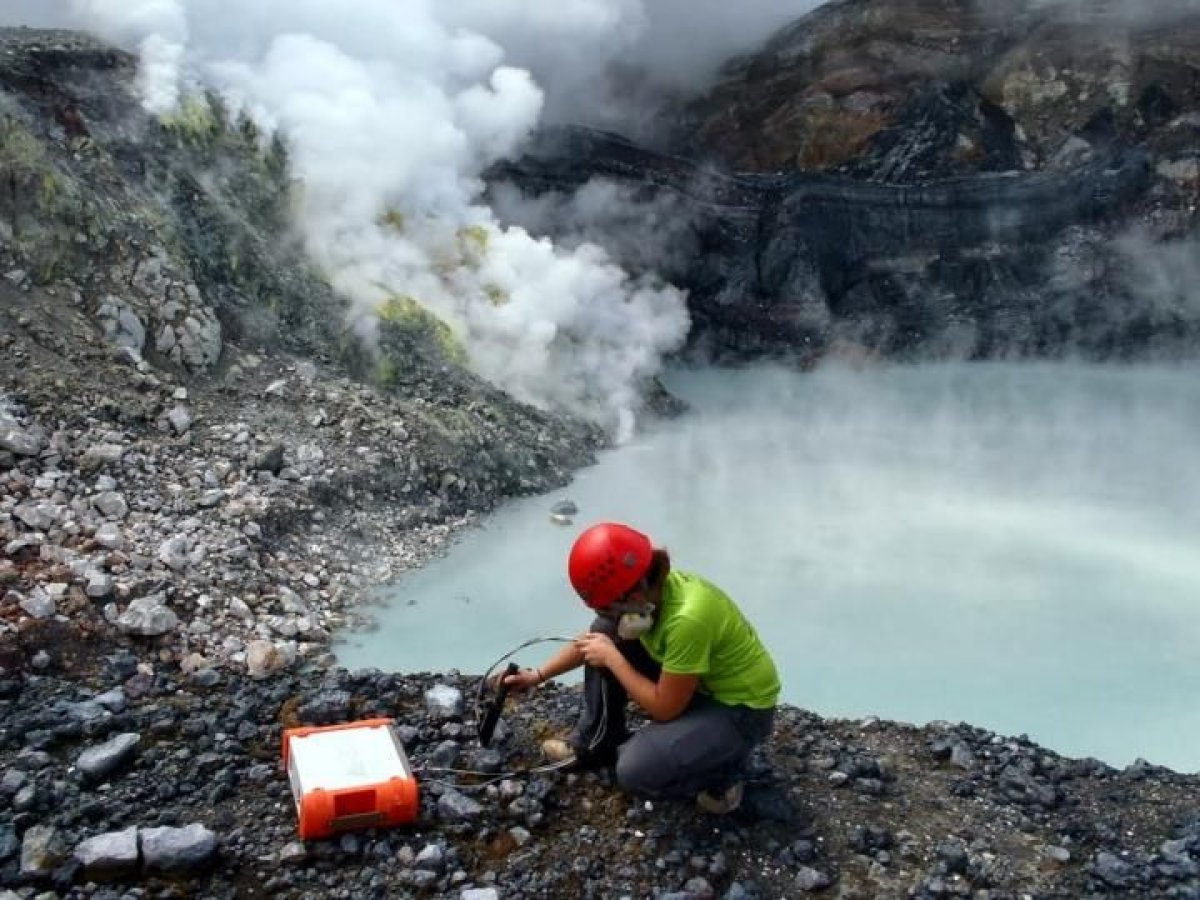Scientists have discovered microbes living in one of the harshest environments on Earth, according to a new study published in the journal Astrobiology—a finding that could have significant implications for the search for life on Mars.
For the study, a team from the University of Colorado Boulder traveled to a toxic volcanic lake in Costa Rica known as Laguna Caliente, which lies inside the crater of the active Poás volcano in the center of the country.
The environment here, on the face of it, is not at all conducive to life. The water often reaches boiling point and is 10 million times more acidic than tap water. Meanwhile, the lake is characterized by sulfuric fumes, scalding hot mud and geyser-like eruptions produced by magma flows under the lake. Add to that the ever-present threat of eruptions.
But despite the extreme conditions, analysis of water samples collected in 2013 showed that the seemingly inhospitable lake does, in fact, support life, albeit just a single species of bacteria.
"Even in an extremely harsh environment, there can still be life," said Brian Hynek, from the Laboratory for Atmospheric and Space Physics and the Department of Geological Sciences at the Boulder university, in a statement.
The researchers detected traces of a bacterium likely belonging to the genus, or group of species, known as Acidiphilium—a hardy class of microbes that have previously been documented in toxic drainage, coal mines and other harsh locations. In the lake, the bacterium likely survives by processing sulfur found in the waters.
But finding just a single type of microbe was a surprise for the researchers.
"It's not uncommon to find an environment with no life, say in a volcano that's self-sterilizing," Hynek said. "But to find a single type of organism and not a whole community of organisms is very, very rare in nature."
The chemical and geological processes taking place at Poás and its lake are quite similar to the ancient hydrothermal systems that are thought to have extended across Mars, making it a useful model in the search for life on the Red Planet. These volcanically active hydrothermal regions, dotted with hot springs, would have provided warm and moist—albeit acidic—environments where life could have evolved.
"With this in mind, understanding the habitability at Mars' hydrothermal acid-sulfate systems is paramount to understanding the Red Planet's astrobiological potential through time," the researchers wrote in the study.
If life did evolve at some point on the Red Planet then, it may well have taken the form of sulfur- or iron-processing bacteria or microbes that resemble those found at Laguna Caliente. "Mars was just as extreme in its early history, so we should probably not expect to find evidence of large-scale biodiversity there," Hynek said.
In light of this, they recommend that future missions to Mars aimed at finding life—such as NASA's upcoming Mars 2020 rover—should focus on finding these types of microbes in regions that once hosted hydrothermal systems.

Research from other locations on Earth has also been informing the search for life on Mars.
For example, scientists recently found organisms in the Atacama Desert in Chile—one of the driest regions on Earth—that have been lying dormant in the sand for decades without water. The findings—which were published in the journal Proceedings of the National Academy of Sciences—suggest that similar microbes could still survive in the arid conditions of Mars's red soil.
Meanwhile, for a study published in the journal Frontiers in Microbiology, researchers tested a new life-detection device in the Canadian Arctic that was able to effectively identify microbes, even in extremely cold conditions. It is hoped that such a device could be sent to Mars on future missions.
Uncommon Knowledge
Newsweek is committed to challenging conventional wisdom and finding connections in the search for common ground.
Newsweek is committed to challenging conventional wisdom and finding connections in the search for common ground.
About the writer
Aristos is a Newsweek science reporter with the London, U.K., bureau. He reports on science and health topics, including; animal, ... Read more
To read how Newsweek uses AI as a newsroom tool, Click here.








